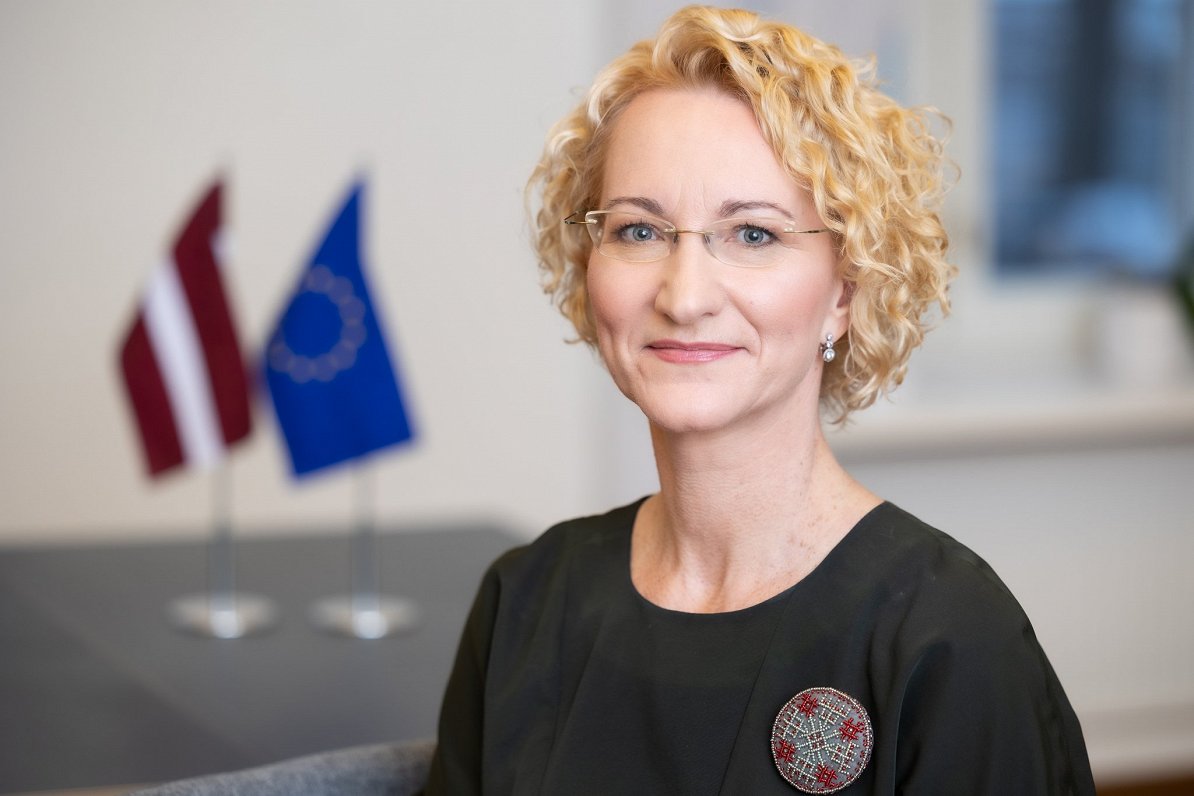Dace Melbārde, elected to the European Parliament as a representative of the right-of-center National Alliance in 2019 joined the centrist New Unity party on Monday, according to a release on the party website.
Melbarde's accession to New Unity was unanimously supported by the party's board – hardly surprising, as at a stroke it makes them the largest Latvian party in the European parliament with three MEPs. Previously, both New Unity and the National Alliance had two MEPs each, while Harmony also has two, Development/For! has one, and the Latvian Russian Union has one.
"The decision to join the team of New Unity is the result of lengthy reflection, which was primarily determined by my and the party's shared vision of Latvian and European values and development priorities. This vision is based on Latvia as a national, European and democratic country and a united and educated political nation, the core of which is the Latvian language as the state language, national culture and universal human values," said Melbārde.
She signalled that she had no intention of laying aside her mandate, adding: "As a member of the New Unity party, I will continue my work in the European Parliament." Her decision will also mean that the European People's Party gains a seat at the expense of the European Conservatives and Reformists.
Inevitably, the move was welcomed by New Unity's Prime Minister Krišjānis Kariņš who said Melbārde's "political maturity is and will be important both in Latvia on a national scale and for our even stronger representation in the European Parliament."
However, the defection was met with a disappointed response from her hitherto colleague in the European Parliament, Roberts Zīle of the National Alliance. He politely stopped short of direct condemnation of the move but said on Twitter that while he valued party loyalty, he also maintained respect for those former members who had contacted him in advance to explain why they were leaving – a hint perhaps that it did not happen in this case. Nevertheless he stated his readiness to continue working alongside Melbārde in the national interest.
Before becoming an MEP. Melbārde was appointed as a non-party-affiliated culture minister in October 2013 in the government of Valdis Dombrovskis (New Unity), replacing Zanete Jaunzeme-Grende (National Alliance). She stayed on as culture minister in the government of Laimdota Straujuma (New Unity) in 2014 and in Māris Kučinskis' (Greens/Farmers) government in 2016.
Melbārde joined the National Alliance in February 2014 and was elected to the EP in May 2019.
The next European Parliament elections will take place in 2024. Before that, on October 1 this year, New Unity and the National Alliance will be among the parties locking horns in Saeima elections.





























